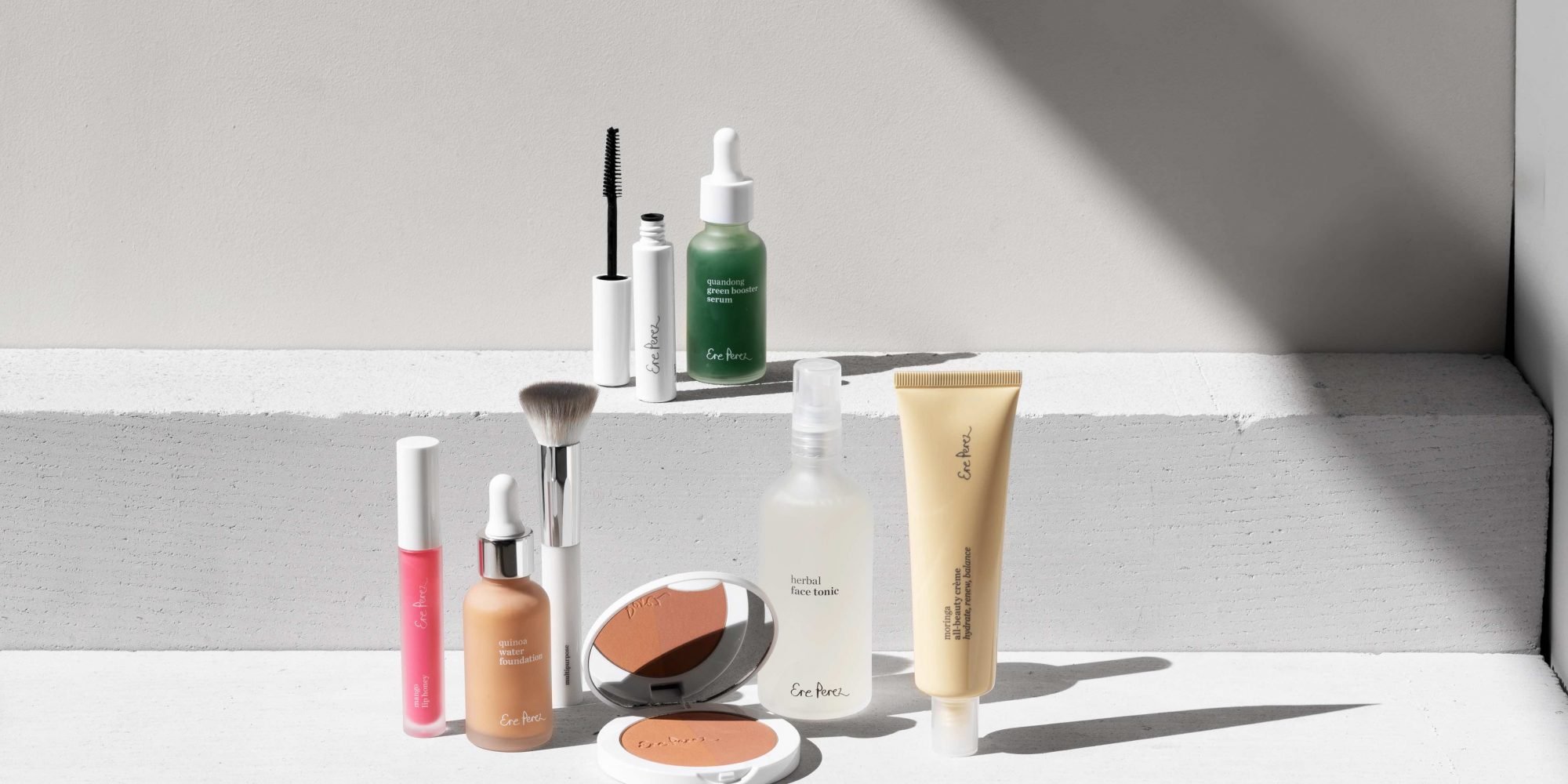
Six Emerging Brands Bringing Greater Diversity To A-Beauty
Australian beauty achieved A-Beauty abbreviation status a few years ago when it made waves globally as the opposite of complicated K-Beauty. Brands that propelled it like Frank Body, Sand & Sky, Aesop, Grown Alchemist and Dr Roebuck’s leaned toward natural ingredients, minimalist multipurpose products and Instagram-ready packaging design. But, as the A-Beauty trend spread, so did unease about the uniformity of the Australian beauty scene. Blonde, blue-eyed beach babes crowded several Australian beauty brands’ social media feeds, and Mecca, the country’s largest independent beauty retailer, found itself at the center of controversy last year after the anonymous platform Estée Laundry aired accusations of discrimination and bullying against it. Mecca responded to the accusations by implementing internal mechanisms for sharing complaints and a review of corporate culture as well as policies and procedures.
The multiplicity of Australia, a nation with about 26 million people that’s home to more immigrants than any other nation of its size, wasn’t fully reflected in the dominant discourse that took shape as A-beauty was exported abroad. Today, the Australian beauty industry isn’t nearly as diverse as it could be, but it’s making progress toward encompassing a variety of voices. A cohort of emerging beauty brands spearheaded by founders from an array of backgrounds, several of whom are drawing upon their heritage to bring fresh approaches to products, is changing the monolithic reputation of A-Beauty. Here, we spotlight six inclusive brands expanding the horizons of beauty from Down Under.
Rohr Remedy
With a background in the art world, Emily Rohr has run a gallery in Broome, Western Australia, and worked with Indigenous Australian artists for almost 25 years. When she founded skincare brand Rohr Remedy a decade ago, she had close ties to the people and communities growing botanical ingredients such as boab, gumbi gumbi and quandong she wanted to use in her brand’s products. In fact, that was the whole point of the venture. Rohr says, “We want to see industry rise in regional Australia that’s owned and run by indigenous people.”
Rohr Remedy has partnered with indigenous-owned suppliers. It frequently works with them in an advisory role and also assists with cash flow by guaranteeing raw material orders. Rohr says, “We like people to own their own businesses that we help create and supply the demand for. We’re a small brand, so we can’t use the full volumes that people produce. Our aim is to market and screech loudly about Australian botanicals.”
As much as possible, the botanicals in Rohr Remedy’s products are wild-harvested, and Rohr can name the places they’re from and the families that produce almost all of them. For example, Rohr Remedy incorporates vitamin C-rich kakadu plum grown by Rohr’s daughter-in-law’s family near Broome.
Suppliers are free to partner with other brands. The goal is to make the relationships between them and Rohr Remedy mutually beneficial. “It works to our benefit as well because we get the first choice in buying and they’re loyal to us,” says Rohr, noting she turns to suppliers to aid in forecasting the demand for new botanicals.
Rohr describes her operation as quite grassroots, but that certainly doesn’t make the products ineffective. She’s enthusiastic about her products’ efficacy. Rohr says, “We use the tried-and-true apothecary formulas that have been passed down in my family for generations and combine them with the active ingredients of the native plants. But we start with the plant, it’s the starting point for all the formulations.”
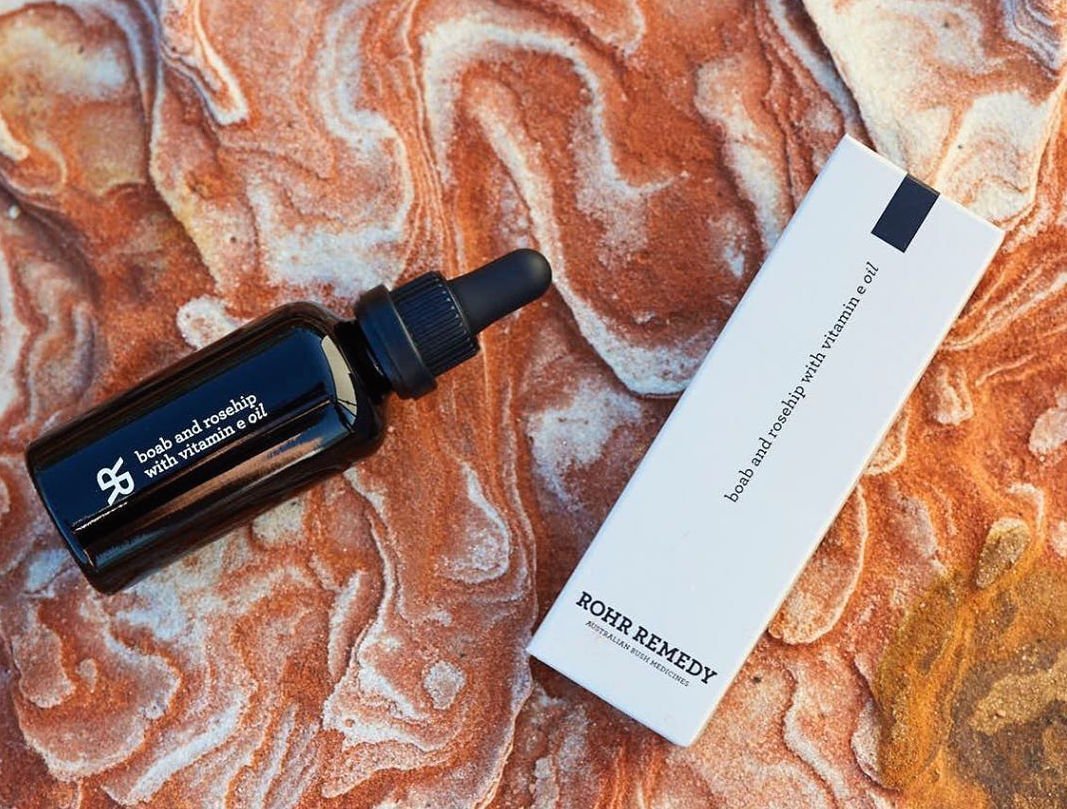
Bush Medijina
Bush Medijina is not so much founder-led brand as it is community-led. Based on Groote Eyelandt, some 30 miles off the coast of mainland Australia, it’s run by the Anindilyakwa Services Aboriginal Corporation. About 70% of the team of 21 women working in the business is indigenous, according to Muriel Jaragba, chairwoman of the corporation and its social enterprise arm.
The women behind the brand draw on traditional knowledge to formulate an extensive range of skincare, body care and haicare products. The botanical ingredients in the range are wild-harvested on Groote Eyelandt, and production takes place there, too, in headquarters affectionately dubbed ‘the shed.’ The process is viewed as preserving Anindilyakwa culture and language.
“We talk Anindilyakwa, which is our first language, and we teach this to the non-indigenous staff,” says Jaragba. “We harvest in the ways our ancestors did, and we teach these and other things to the younger generation of girls. We have a relaxed way of working both out bush and at the shed. We sit in circles sharing stories while we make and package the products.”
She explains that Bush Medijina is a women-only business for cultural reasons. “In our culture, bush recipes are traditionally made by women, and we consider this to be women’s business. In our community, women face a lot of social challenges, and we wanted a business and a place where women can come and feel safe, share openly with each other and make important decisions. We wanted to create change in our community for women, including the opportunity for women to gain financial independence, and a job to feel proud of.”
Miracle Balm is Bush Medijina’s bestseller. It’s formulated with merrika, aka broad-leafed wattle, a native botanical relied on by the Anindilyakwa people to soothe skin ailments. Jaragba says, “It also smells like the Australian bush, and has added organic eucalyptus and tea tree oils.”
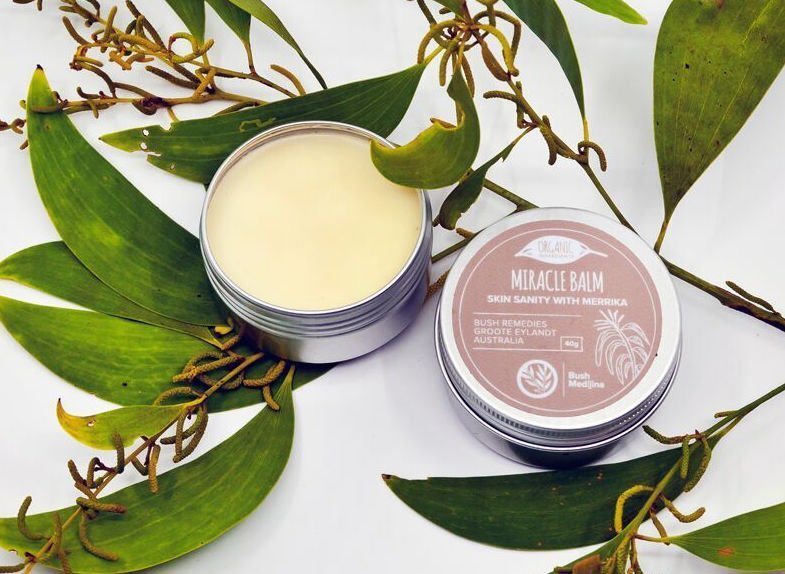
Juddarnje
For Linda Slockee, establishing the skincare and body care brand Juddarnje was a chance to spotlight resources from the Australian native bush. She initially began experimenting with botanical ingredients in 2007 as a hobby and transformed her experimentation into a commercial venture four years later. Now, her husband Michael and three of the couple’s children are also involved in Juddarnje, which features ingredients such as Australian macademia nut oil and lillypilly, a fruit common to the indigenous diet.
An Aboriginal Australian, Michael is a Bundjalung man, but he didn’t know much about native botanicals until diving into them for Juddarnje. “My husband is the indigenous one in this story. He had time growing up with family, but, unfortunately, it’s women’s business that teaches the use of the plants and oils, and the medicines,” says Slockee. “We are in contact with other communities, but have not shared nor sourced their knowledge. Many of the communities prefer to keep their knowledge to themselves. We respect that.”
Slockee emphasizes Juddarnje pays homage to the special relationship her family has had with the land. “Their footprint was so small compared to what we see today,” she says. “We wanted to honor that heritage by keeping traditional values such as ensuring what we take and use from the bush does not have a detrimental impact on Country and does not damage or pollute the environment.” (Indigenous Australians call their land as “Country,” and the word refers to the physical environment and the culture connected to it.) Juddarnje’s ingredients are natural, biodegradable and sustainably-sourced, and its packaging is minimal and PET-recyclable.
Slockee says the brand’s mission is summed up in the name Juddarnje, which means “frog” in the dialect of the Bundjalung Nation. Slockee elaborates, “Frogs can only survive and thrive in pristine environments, and we believe it is a fitting symbol for what we stand for.”
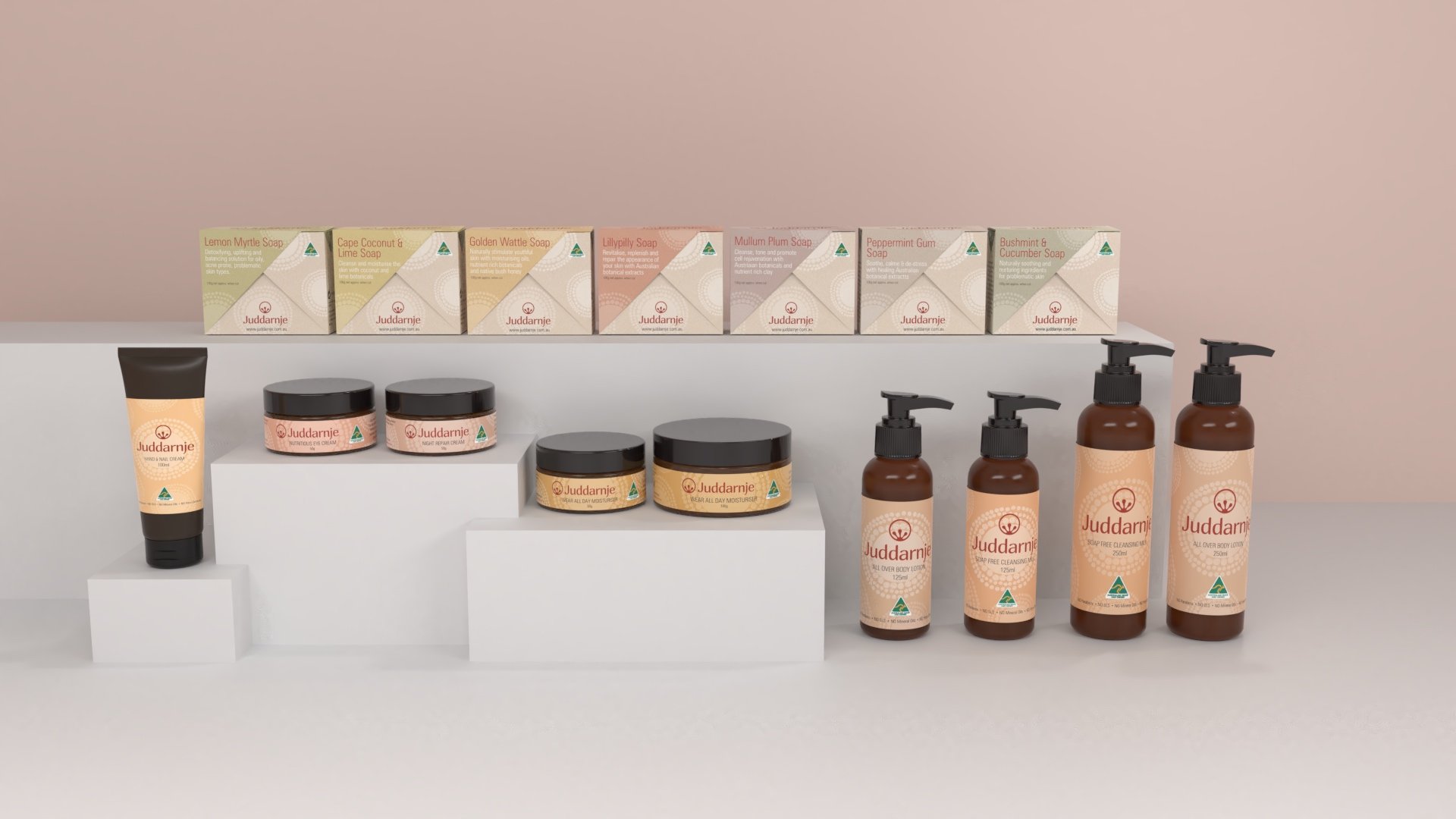
Ere Perez Natural Cosmetics
One of the country’s original clean indie beauty brands, Ere Perez Natural Cosmetics was founded in 2004 by Mexican-Australian Ere Perez. She inherited her passion for natural healing practices from her grandparents and, when she arrived in Australia from Mexico, she noticed a gap in the market for natural cosmetics. To fill it, she developed her brand’s Natural Almond Mascara. Containing sweet almond and other botanical oils, the mascara is a perennial bestseller.
From humble beginnings hustling out of Perez’s beachside apartment, Ere Perez has grown to a global staff of 40. It’s sold in 28 countries worldwide, including at the retailers Credo, Follain and The Detox Market in the United States, and Feelunique in the United Kingdom. Perez and her husband Juan, CEO of the brand, split their time between offices in Sydney and Monterrey, Mexico. Ere Perez is certified cruelty-free and carbon-neutral, and the majority of its products are vegan. In addition to sweet almond oil, ingredients in the products include oat milk, quinoa and carrots, which are tapped for natural pigment in multipurpose color pots.
Perez is inspired her ancestral and adopted homelands. “Latin America will forever be my roots. The beauty industry is huge in Mexico—color cosmetics in particular—which is why it will always play a major role in the products I develop,” she says. “Aussie beauty brands, however, are increasingly focusing on eco-conscious ingredients, manufacturing and simple packaging. I have been influenced so much by living and working in Bondi, and by the eco lifestyle of Australia.”
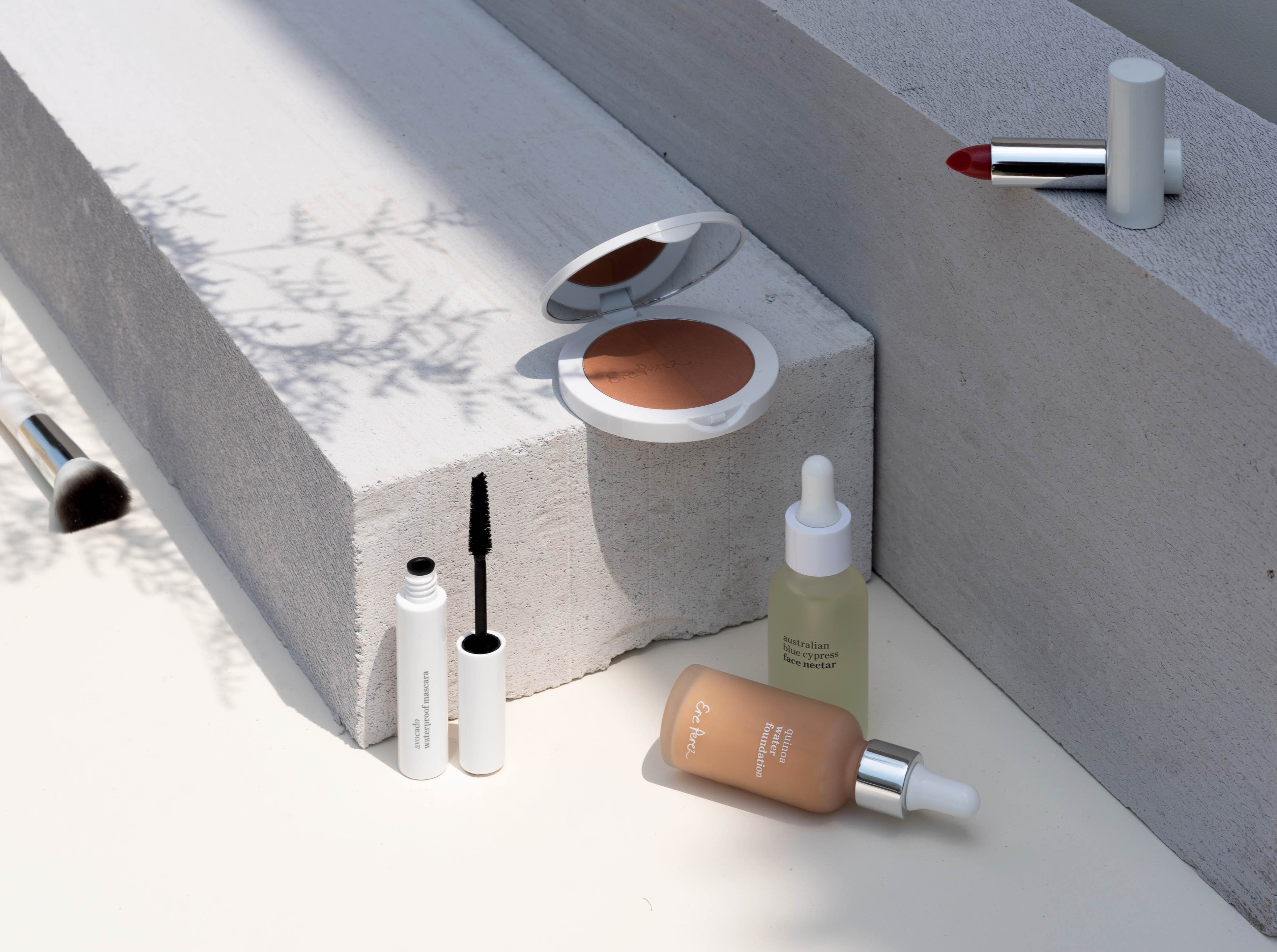
Shades of Ebony
Frustration led Monica Kenyi to launch the e-commerce website Shades of Ebony in 2016. “I arrived in Australia [from Uganda] in early 2001. Growing up as a teenager who was just starting to learn and experiment with makeup, it was extremely difficult not being able to find products that suited my dark skin tone,” says Kenyi. “There were hardly any stores that carried beauty products for people of color back then and, in fact, it’s still the case today. I wanted to create a space where women such as myself could shop with confidence and feel valued.”
Based in the Western Australia city Perth, Shades of Ebony carries a mix of drugstore brands such as L.A.Girl and Maybelline, and indies like Juvia’s Place alongside its eponymous Shades of Ebony Collection. The top seller is Maybelline New York’s Fit Me Foundation Matte + Poreless, which is available in an extended shade range not typically stocked by Australian retailers. She says, “Quite often it’s the two deepest shades, java and espresso, that are the first to sell out.”
Kenyi manages the majority of day-to-day operations herself. She plans to expand Shades of Ebony Collection’s assortment this year, adding lip gloss and highlighter to its existing selection of neon pigments, cosmetic glitter and false lashes. Kenyi says, “We wanted to create a one-stop-shopping experience where women of color can buy all their favorite beauty brands in one place.”
Shades of Ebony’s deliveries are currently limited to Australia, but it’s received inquiries from as far away as Africa and India. “The greatest joy and privilege for us is when we deliver our products to remote Indigenous communities,” says Kenyi. “The furthest we have delivered so far is to Badu, an island located in the Torres Strait region of Australia. We are extremely grateful that we are in a position to be able to play a small, but important part in promoting inclusivity and diversity within the Australian beauty industry.”
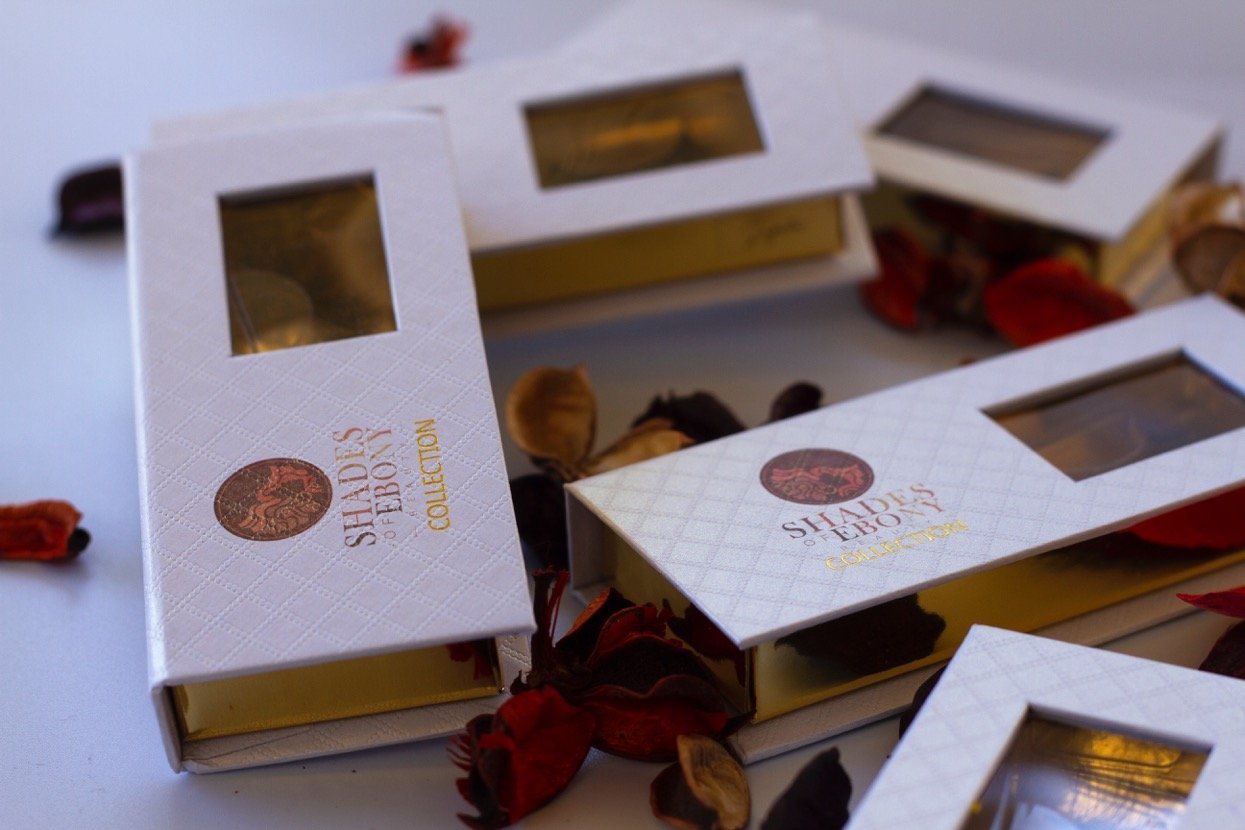
Hop & Cotton
Hop & Cotton founder Ee Ting Ng is a molecular biologist who segued into cosmetic chemistry in an attempt to manage her self-described difficult skin. “For years, my skin just could not agree with anything off the shelf, so this was my last resort,” she says. After testing formulations she created for herself on family and friends, Ng introduced her skincare line in 2017.
Hop & Cotton is among a very small number of customizable, direct-to-consumer skincare brands in the Australian market. Most of its customers come from its home country, but the brand has started to travel across the globe to the U.S., U.K., Canada, Singapore and the Philippines. Its customers complete a detailed questionnaire about their skin concerns, and feel and fragrance predilections.
According to Ng, the principal formulator for Hop & Cotton, the personalized nature of its merchandise enables the brand to cater to a diverse audience. “Every individual’s skin is unique, even if they have the same background,” she says. “Formulating our products from scratch allows us to have total control over the physical aspects of the product such as texture, spreadability and finish. This means that not only do our products suit our customers’ skins, they are also created to the customers’ preference in terms of how they’d like their products to feel on their skin.”
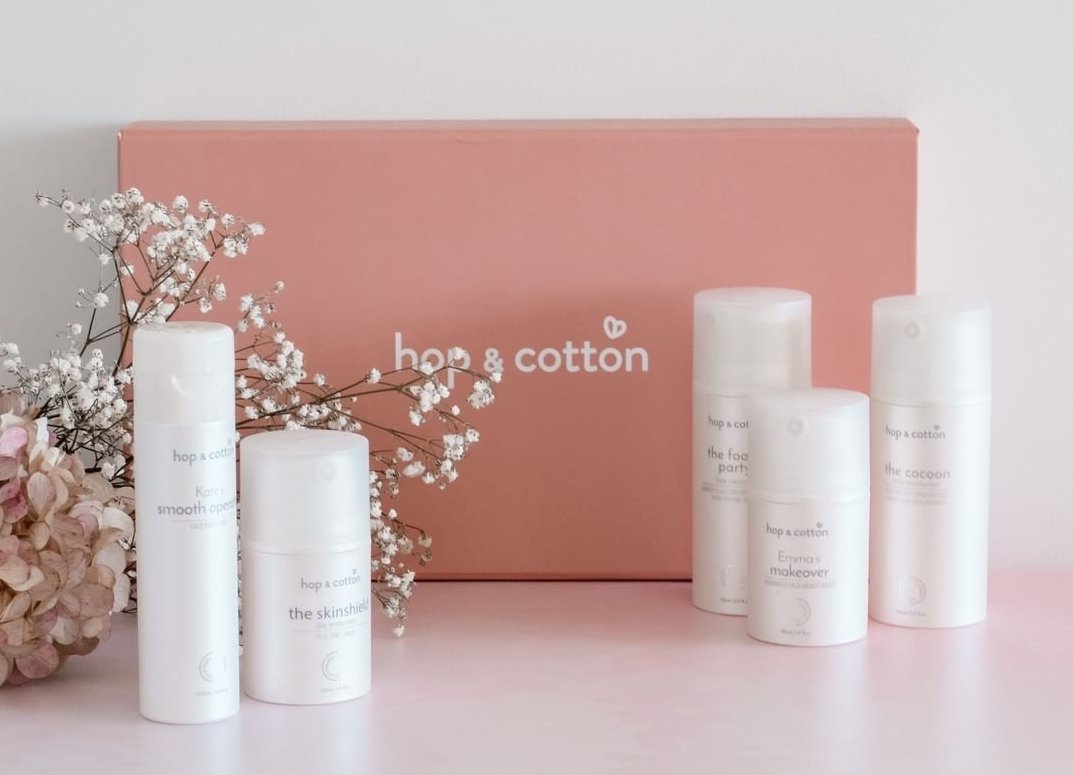
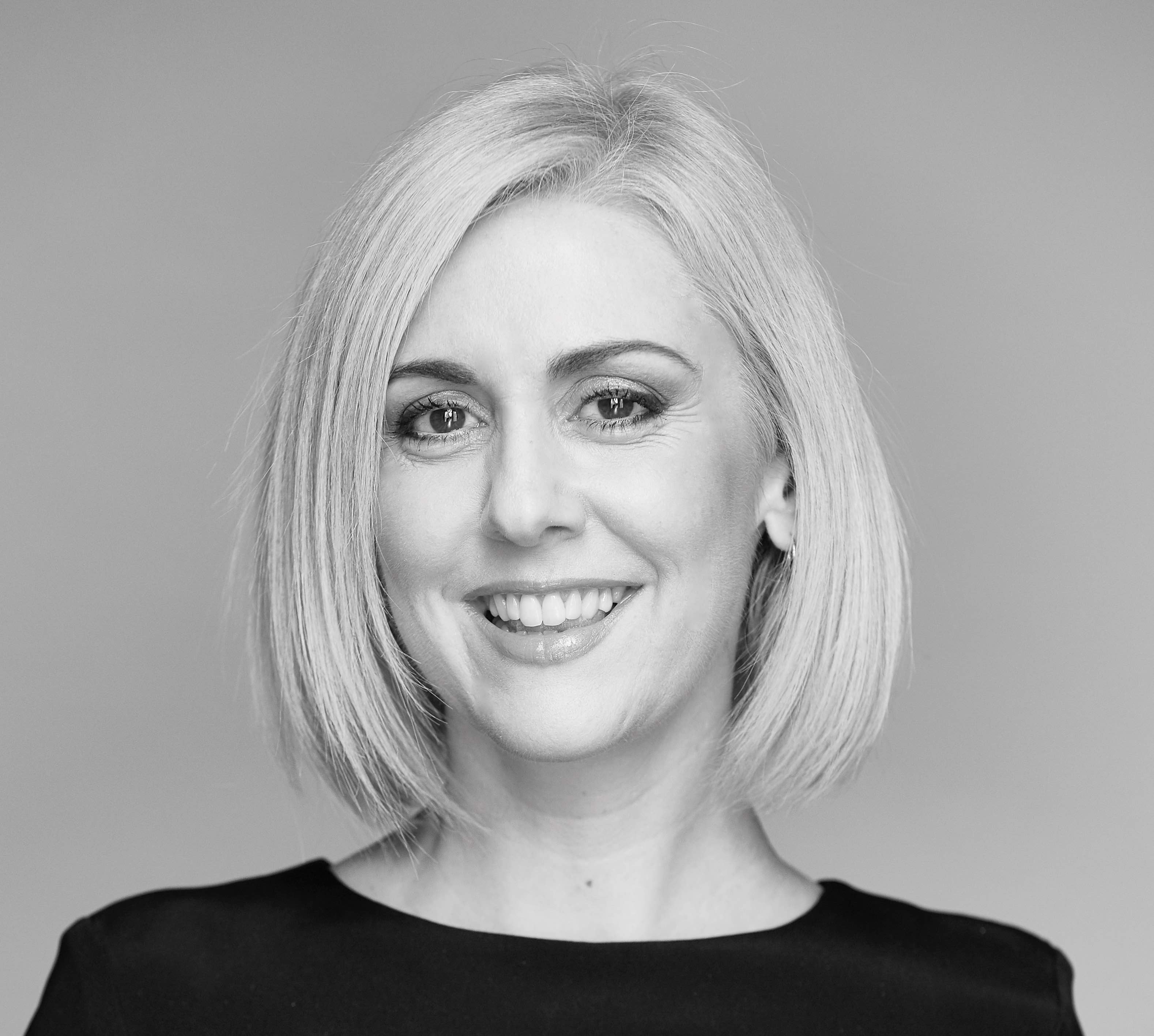




Leave a Reply
You must be logged in to post a comment.